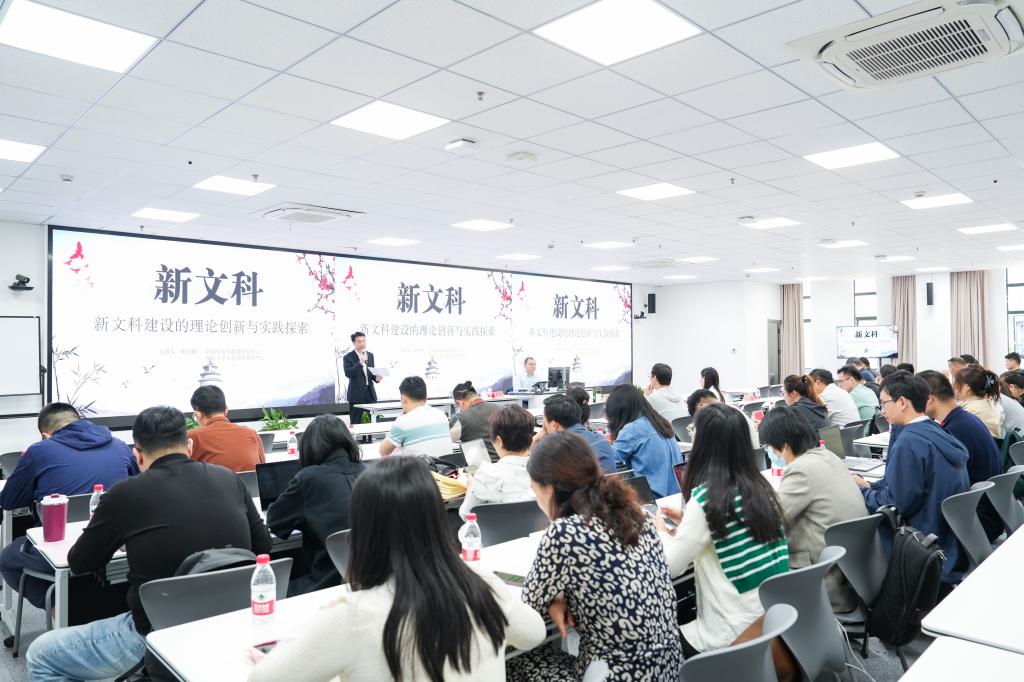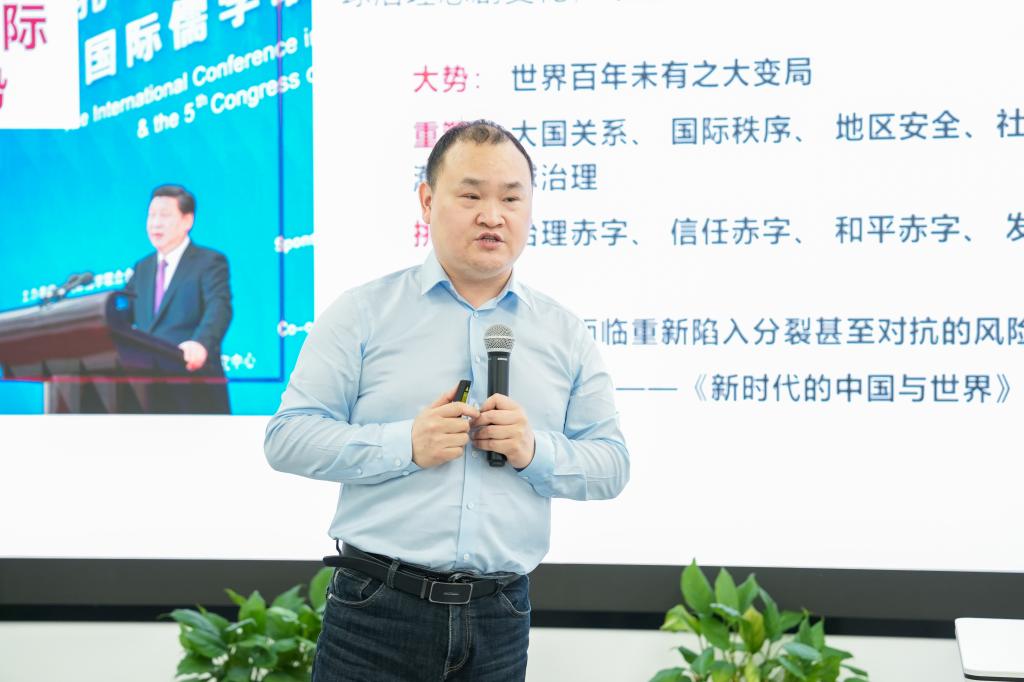In order to further promote the construction of new liberal arts programs, deepen the understanding of the connotation of new liberal arts, and continuously improve the level of new liberal arts program construction, Taizhou University (TU) invited Professor Hu Youfeng, Deputy Director of the National New Liberal Arts Education Research Center, to deliver a special lecture titled “Theoretical Progress and Practical Exploration of New Liberal Arts Construction” on May 17th. The lecture was hosted by Li Jianjun, Vice President and Member of the Communist Party of China (CPC) TU Committee.

A snapshot of the lecture on the construction of new liberal arts programs

Professor Hu Youfeng delivers the lecture
Professor Hu Youfeng focused on the issues of “why to build new liberal arts, what kind of new liberal arts to build, and how to build new liberal arts”. He drew parallels from various sources, introduced the development process of new liberal arts with a broad strategic vision, a philosophical perspective, and illustrations and texts, and elaborated on the deep logic and inherent requirements of cultural values security led by the construction of new liberal arts. He condensed the essence into “one strategy, two system constructions, three types of talent cultivation, and four core elements”, pointing out the path and framework for the construction of new liberal arts. He pointed out that the characteristics of diversification, learning orientation, personalization, and modernization of Chinese higher education after entering the popularization stage determine that the construction of new liberal arts should be based on the strategic heights of building a strong country in education, and emphasizing the role of higher education and liberal arts. Starting from the construction of China’s independent knowledge system and talent cultivation system, the key to cultivating top talents in basic disciplines, high-level talents urgently needed by the country, and top entrepreneurial talents for the country and society lies in building the four core elements of curriculum, teaching materials, practice, and teachers. He emphasized that the construction of new liberal arts is a reform oriented by demand, aiming to move from the virtual to the real, get rid of the dilemma of “people from the past teaching modern people to face the future,” and build a practical system with engineering characteristics. The “newness” of new liberal arts lies in its orientation toward the new era and its innovation, requiring the development of new systems, new models, new courses, and new teaching methods.
Li Jianjun gave a concluding speech for the lecture. He highly praised Professor Hu Youfeng’s passionate lecture, encouraging everyone to learn from Professor Hu’s strategic thinking, forward-looking vision, and methodology of historical research in teaching and research. He encouraged everyone to adopt the approach of “smart people making great achievements through hard work”, flying first as a slow bird, and compensating for one’s weaknesses with hard work. He also encouraged learning from Professor Hu’s dedication to his career, emphasizing that only when one has a sense of crisis can one have a sense of mission and ultimately a sense of responsibility. Only by deeply loving and being responsible for one’s profession can one promote its better development. Li Jianjun emphasized that the construction of new liberal arts programs should keep up with the pace of the digital and artificial intelligence era, aiming to develop in line with national strategic development, market demand, and parental expectations.
The heads of various functional departments and relevant liberal arts schools, university supervisors, heads of liberal education sub-centers, heads of the Research Center of Harmonious Culture, heads of departments of liberal arts programs, and key teachers attended the lecture.